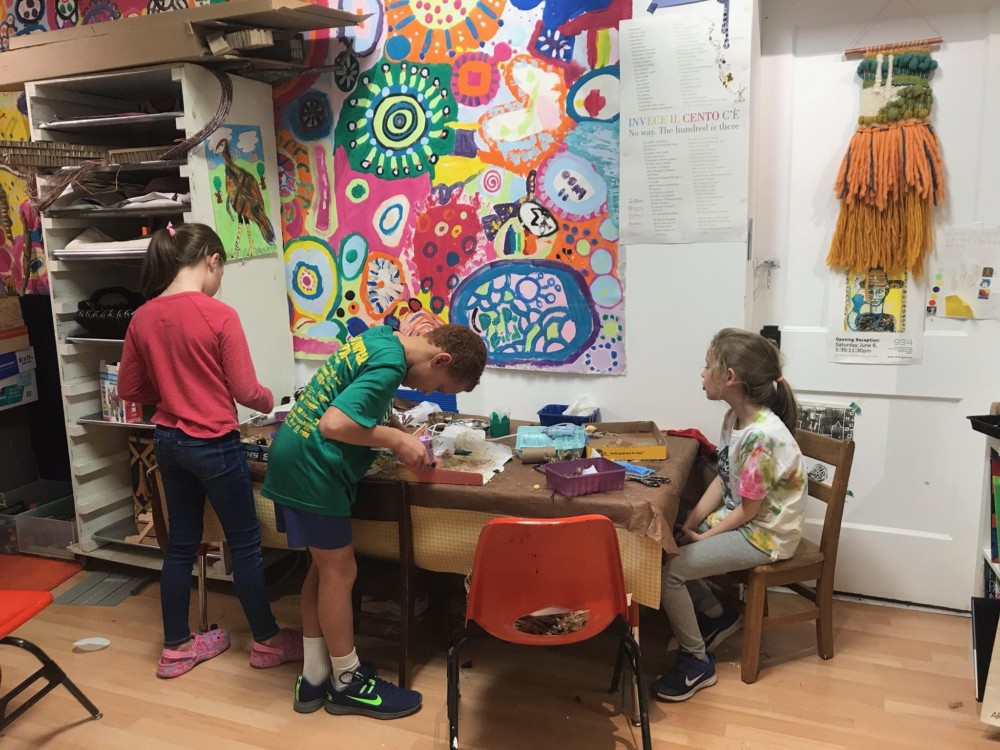By Patrick Cooley, Tanisha Thomas
The Columbus Dispatch
WWR Article Summary (tl;dr) The business closings can leave communities without much-needed institutions that people deeply depend on.
Columbus
Paper Moon Art Studio was the kind of business perfectly suited to Clintonville.
Owner Kristen Marek taught art classes to young children, instructing them in styles and letting them put those lessons to use. Marek saw the studio as providing a valuable outlet for children’s natural creativity.
Then the coronavirus struck, and Marek couldn’t justify keeping Paper Moon open. Only a handful of students could take a class and still observe social distancing requirements in the 750-square-foot space, and lucrative summer camps were canceled.
With bills piling up and no revenue, Marek permanently closed the 5-year-old studio in mid-May.
And with that, Clintonville lost a community staple to the coronavirus.
As the pandemic permanently shutters small central Ohio businesses, officials and residents worry that more than jobs will be lost. For some, the closings rob communities of the institutions that make neighborhoods unique.
Clintonville parents who depended on Paper Moon for after-school activities, for example, are now at a loss.
Amy Carney, 48, sent three of her six children to Paper Moon.
“They were pretty flexible,” she said of the studio. “If (the kids) wanted to go a different way, or weren’t quite sure what they wanted to do, they would change the project a little to make it more interesting to them.”
The Clintonville woman described herself as “not a terribly creative person,” and said she was grateful the studio gave her children a chance to explore their artistic sides.
The closure “is a real loss,” she said.
Granville Lumber Company closed in mid-April after 70 years in business. A former general manager declined to comment, but city officials and residents expressed deep dismay.
“I couldn’t even talk about it for a couple of days,” Mayor Melissa Hartfield said. “That business started in 1950 and it’s been an institution here for all of my life. It’s heart-wrenching.”
Businesses like Granville Lumber “are definitely part of the fabric and charm of the community,” Granville City Council member Rob Montgomery said.
The personal service the business provided can’t be replaced at big-box stores, he said. Residents of Granville now have to drive a half-hour or more to find a similar store.
The Firefly Play Cafe, another Clintonville staple, also closed in the spring after nearly 10 years. The cafe provided a playground for children and a space for adults to relax.
Firefly gave Worthington resident Lauren Vukovich, 34, and her 3-year-old son a sense of belonging when she moved to central Ohio in 2018.
“It will definitely leave a void in my family,” Vukovich said.
Erica Carlson, 35, of Hilliard, runs her own child entertainment service and performed storytimes at Firefly. As a last goodbye, Carlson posted a video on Facebook encouraging those who loved the playground to donate to owner Jennifer Kramer’s PayPal and Venmo for support.
“It was a wonderfully diverse and accepting environment,” Carlson said.
Clintonville Area Commission member Judy Minister used to take her granddaughter to cooking classes at Flowers and Bread, a High Street bakery now temporarily closed. Between Flowers and Bread, Paper Moon, and COSI, which is also temporarily closed, she worries that neighborhood children have lost valuable experiences.
“It’s hurting the kids,” she said.
Minister thinks Clintonville will recover, but commission member BJ White worries that national franchises will crowd out the area’s mom-and-pop shops if the coronavirus outbreak results in more closures.
“When I went to Ohio State, we used to trek up to Clintonville on the weekends,” she said.
“That’s when I first became enamored with the community. It had all these really cool little stores, consignment shops, mom-and-pop businesses, arts and crafts. It really helped define the flavor of High Street, and gave it a lot of character.”
The streets are lined with eclectic independent restaurants and eccentric shops selling growlers of craft beer to rare books and flags to used clothing.
Chain restaurants such as McDonald’s and Wendy’s have crept into the community in recent years, and White worries that climbing property rates will scare off entrepreneurs looking to open up shop.
On top of their intrinsic value, she said, mom-and-pop stores are more likely to buy from and support other local companies, creating a ripple effect when one closes.
Mom-and-pop businesses also support their communities indirectly, Otterbein University marketing professor Michael Levin said.
“Small businesses sponsor and contribute to Little Leagues or other youth sports,” he said. “They may also contribute to activities in high schools: sports, bands, sponsorships in musicals or plays.”
If local businesses continue to close, the people who run those activities may need to start looking elsewhere.
___
Distributed by Tribune Content Agency, LLC.














































































































































































































































































































































































